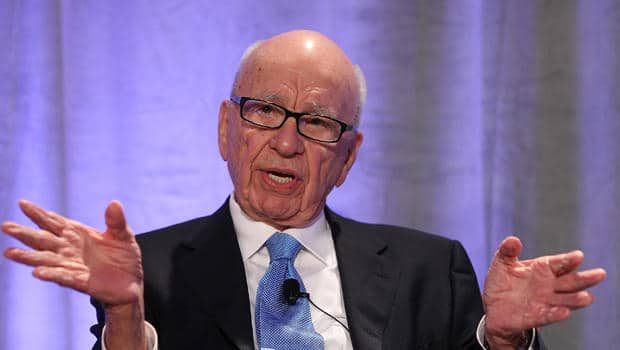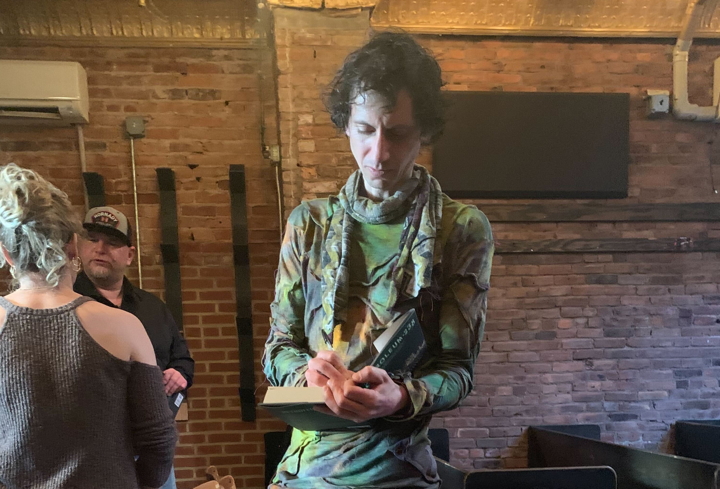The headline on The Australian newspaper’s story about a leak of a major United Nations climate change report read “We got it wrong on warming, says IPCC”.
But an investigation by Australia’s press watchdog has found that in fact, it was the Murdoch-owned national newspaper that “got it wrong”.
The Australian Press Council has upheld complaints about the coverage, led by a story from the newspaper’s environment editor Graham Lloyd.
The council also found the newspaper’s attempts to correct its story had failed to meet the press standards.
Lloyd’s original story, published on page one in September 2013, was an echo of a story published the previous day by the UK Daily Mail’s David Rose.
The story claimed a leaked version of the fifth UN Intergovernmental Panel on Climate Change report into the scientific basis for climate change would state that “over the past 60 years the world has in fact been warming at half the rate claimed” in the previous 2007 report.
Rose and Lloyd seemed to want people to conclude that the IPCC didn’t know what it was doing, had shown to have got things badly wrong and that global warming was only half as bad as people had been making out.
Except as I explained in The Guardian at the time, the Daily Mail, The Australian and several other outlets that parroted the story had badly misread the numbers.
The rate of warming over the past 50 years declared by the two IPCC reports was in fact almost identical (a difference of only 0.01C) when you compared apples with apples, rather than comparing, say, a newspaper with a bowl of cheese.
The Australian Press Council adjudication, handed down this week, said:
The Council has concluded that the erroneous claim about the revised warming rate was very serious, given the importance of the issue and of the need for accuracy (both of which were emphasised in the editorial that repeated the claim without qualification). Although based on another publication’s report, the claim was unequivocally asserted in The Australian headline, “We got it wrong on warming, says IPCC”, which also implied the IPCC had acknowledged the alleged error. The impression that the claim was correct was reinforced by The Australian saying the IPCC had been “forced to deny” that it was in crisis talks.
The Council considers rigorous steps should have been taken before giving such forceful and prominent credence to The Mail on Sunday’s claim.
According to the council, part of The Australian’s defence had been that “there was no reason for it to have suspected errors in the articles in The Mail on Sunday and noted that The Wall Street Journal had also published an article containing the same error”.
This is a remarkable claim, given Rose’s record of misrepresentations on climate science (see coverage in the UK’s Carbon Brief , here and here, on Rose’s record going back to 2010).
The council also investigated how The Australian had tried to correct the story by writing a clarification and then changing its headline to “Doubts over IPCC’s global warming rates” which, in hindsight, should really have read “Doubts over our ability to correct a story that was wrong”.
The newspaper had also published a letter from University of Melbourne climate scientist Professor David Karoly, placing it fifth in a series of six letters responding to the story.
The council said:
Given Professor Karoly’s expertise and the importance of the issue, his letter should have triggered a prompt and thorough investigation by the publication. Instead, the error was repeated in an editorial on the page opposite his letter. Moreover, his letter was published below other letters which assumed the original article was true and under a collective heading which reflected their views, rather than his correction.
The Council considers the gravity of the erroneous claim, and its repetition without qualification in the editorial, required a correction which was more substantial, and much more prominent than a single paragraph in the lower half of page 2. The heading should also have given a brief indication of the subject matter in order to help attract the attention of readers of the original article (and editorial), and thereby meet the Council’s long-standing requirement that a correction “has the effect, as far as possible, of neutralising any damage arising from” the original article.
Accordingly, the complaints about the correction are upheld.
The Council welcomes the acknowledgements of error and expressions of regret which the publication eventually made to it. But they should have been made very much earlier, and made directly to the publication’s readers in a frank and specific manner. It is a matter of considerable concern that this approach was not adopted.
The press council finding is further evidence that anything that The Australian publishes on climate change should be treated with extreme scepticism.
In January 2013, The Australian published another page one story from Lloyd which claimed a study had found that sea level rise was not linked to global warming.
The claim was wrong and as I pointed out at the time, had misrepresented the scientific paper. The Australian deleted the story from its website.
Lloyd was also caught out quoting from an interview published on the website of an organisation which claims that carbon dioxide is not even a greenhouse gas.
Lloyd’s story was headlined “Emissions debate heats up while experts warn of a coming ice age” and reported as news an interview that had been given five years earlier.
In December 2012 the press council found against The Australian for a report by anti-wind energy activist and climate science denialist James Delingpole, which had used a quote from an unnamed sheep farmer to compare the wind energy industry to a “pedophile ring”.
The Australian has published the latest APC finding on its website and attached a link to the original story.
But given the newspaper’s record on climate science reporting and those of its Murdoch-owned stablemates it is unlikely to make much difference.
Subscribe to our newsletter
Stay up to date with DeSmog news and alerts






